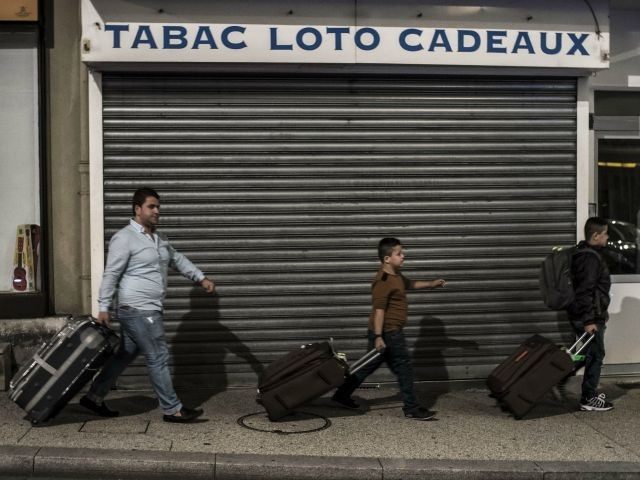European leaders are planning to form a powerful, centralised EU-wide border force. Under the new plans, the legal responsibility for deporting (or not deporting) people judged to be economic migrants would be taken from member states and given to the EU.
The new proposal, which comes in response to the continent’s deepening migrant crisis, is to be discussed at a meeting of EU interior and justice ministers later in the month, The Independent has learnt.
The proposal will have legal force and could be seen as another attempt by Brussels to seize yet more power from nation states over decisions relating to the migration.
The proposal has arisen as the EU is also preparing to reveal other suggested new powers next week, whereby member states will be forced into accepting according to a quota system those refugees who have been attracted by German and Swedish open door policies.
Frontex, the agency currently acting as a liaison point for EU border controls, would take on a host of new legal responsibilities. Under the new plans Frontex would be able to arrange or block the deportation of people deemed to be economic migrants from anywhere in the EU, and possibly to manage the relocation of refugees across Europe.
Alongside the new powers the Commission will produce a list of “safe countries of origin,” where migrants can be returned to because the EU considers them sufficiently safe and stable. The list is strongly expected to include all the Balkan States, Pakistan, Bangladesh and Senegal.
In just three days time Jean-Claude Juncker, the European Commission President, will present his plan to relocate 120,000 Eritreans, Syrians and Iraqis who have already entered the EU illegally. The migrants will be distributed across EU countries according to a formula based on population and wealth, if the plan is accepted.
Germany, Italy and France support the plan, but there is resistance from the Eastern, so-called Visegrad group of countries – Hungary, Poland, Slovakia and the Czech Republic – as well as Spain, Portugal and Britain.

COMMENTS
Please let us know if you're having issues with commenting.